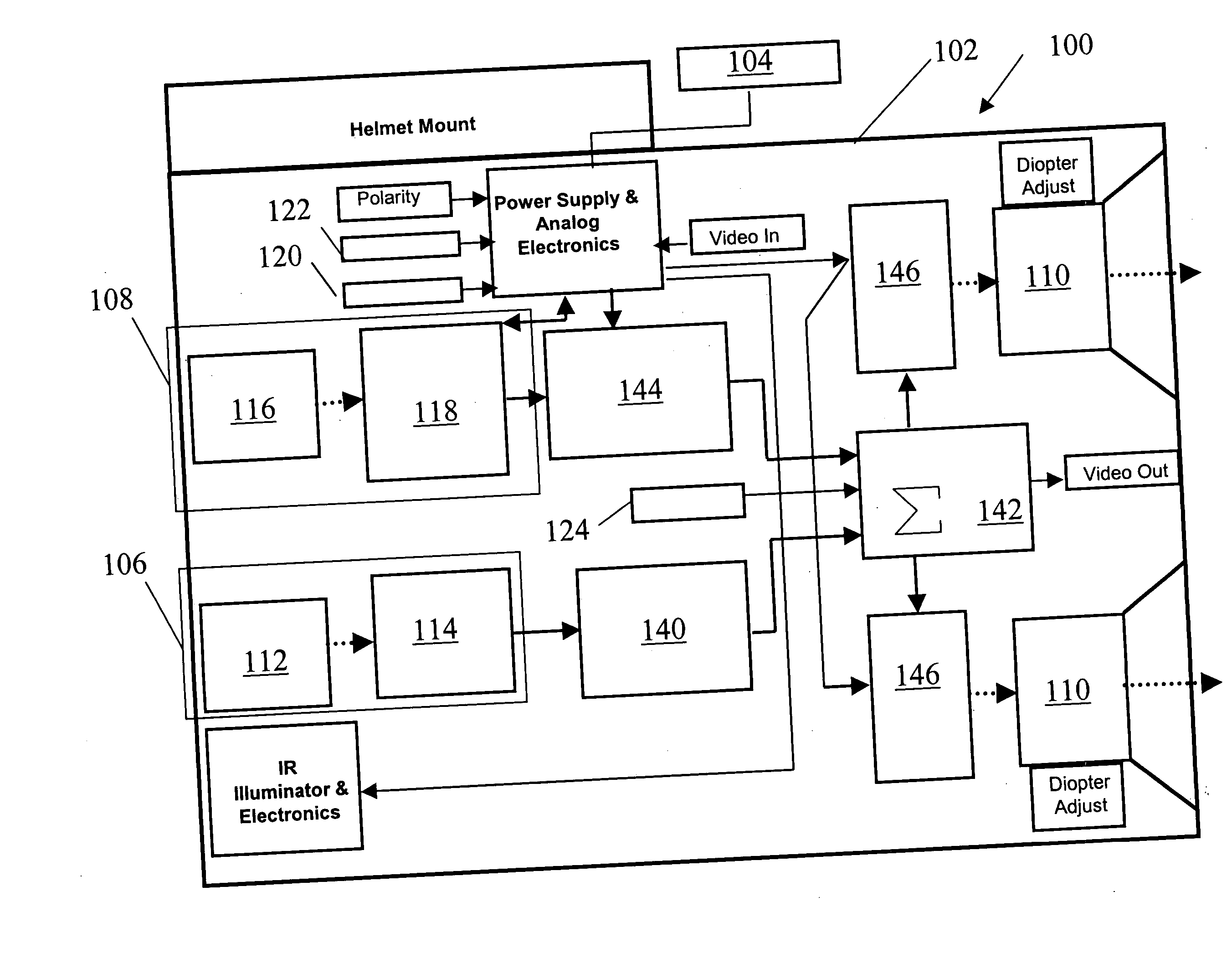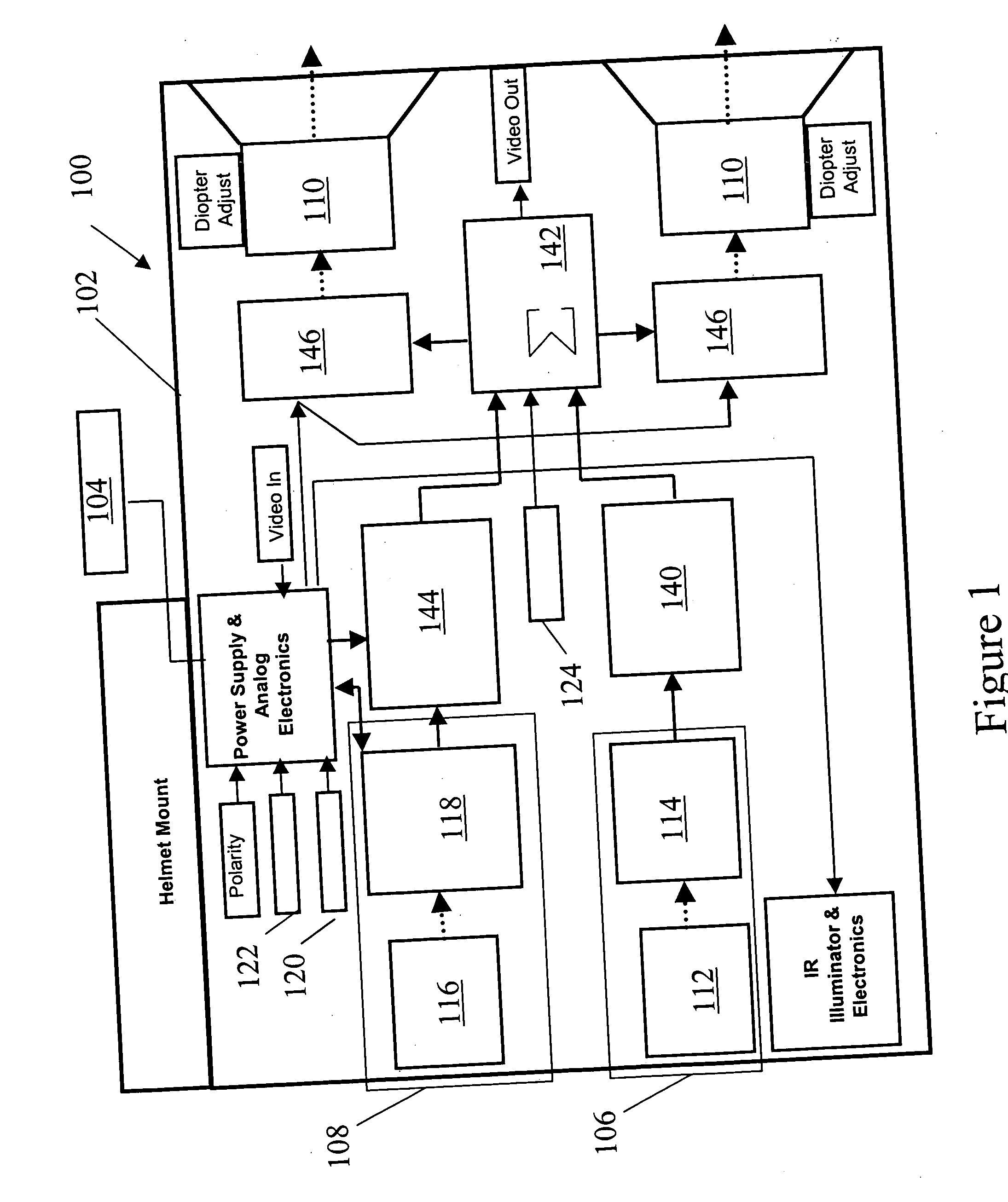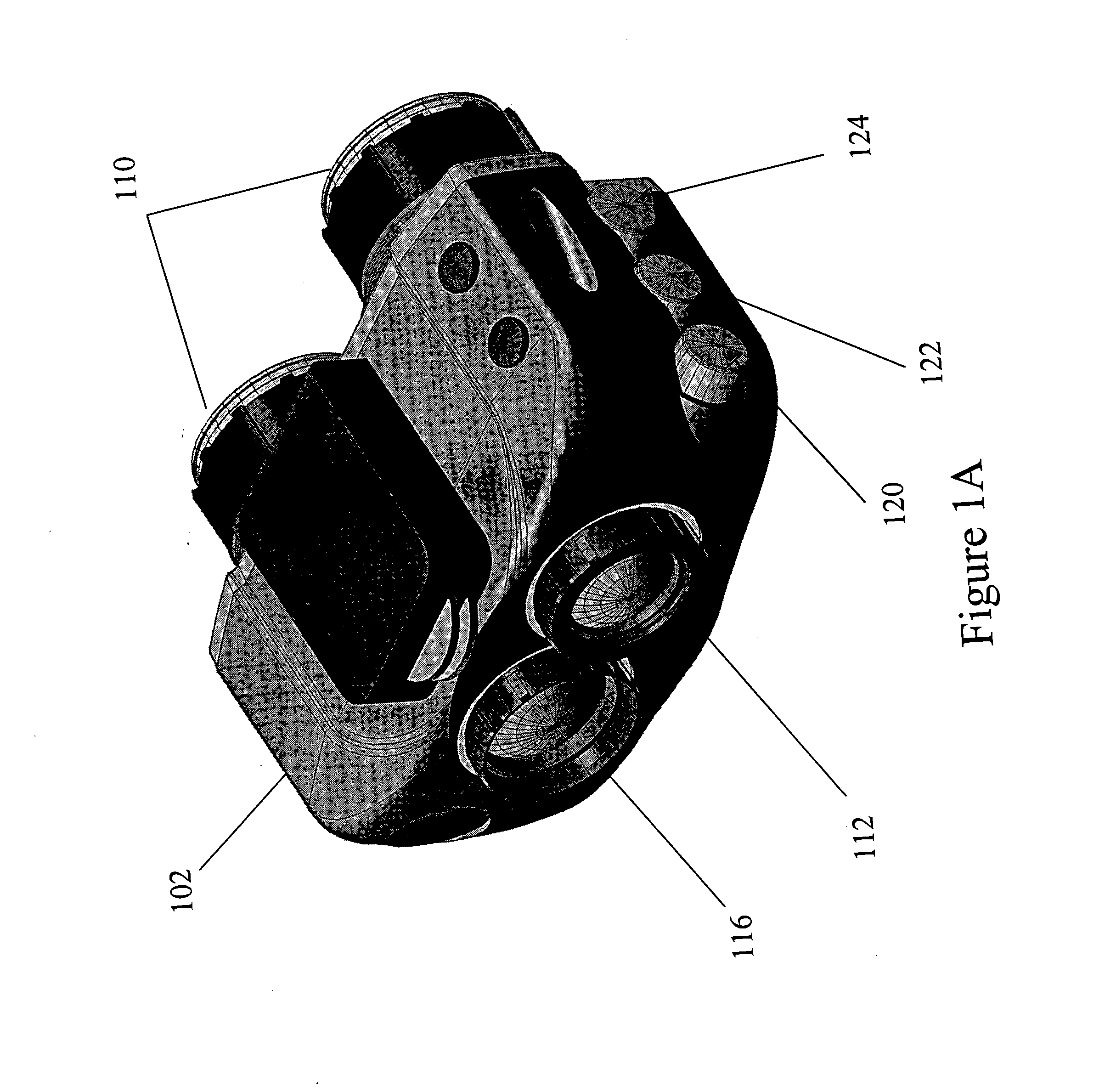Fusion night vision system
- Summary
- Abstract
- Description
- Claims
- Application Information
AI Technical Summary
Benefits of technology
Problems solved by technology
Method used
Image
Examples
Embodiment Construction
[0053]FIG. 3 is a block diagram of a first fusion night vision system 300. The electronics and optics may be housed in a housing 308. Information from a first channel (I2) channel 302 and a second channel 304 may be fused together for viewing by an operator 328. A channel may be an optical path through which scene information may travel. The first channel 302 may be configured to process information in a first range of wavelengths (the visible portion of the electromagnetic spectrum from approximately 400 nm to approximately 900 nm) and the second channel 304 may be configured to process information in a second range of wavelengths (from approximately 7,000 nm to approximately 14,000 nm). The low end and the high end of the range of wavelengths may vary without departing from the invention. The first channel 302 may have an objective focus 310 and an image intensification (I2)tube 312. Suitable I2 tubes 312 may be Generation III tubes and are available from Northrop Grumman and ITT....
PUM
 Login to View More
Login to View More Abstract
Description
Claims
Application Information
 Login to View More
Login to View More - R&D
- Intellectual Property
- Life Sciences
- Materials
- Tech Scout
- Unparalleled Data Quality
- Higher Quality Content
- 60% Fewer Hallucinations
Browse by: Latest US Patents, China's latest patents, Technical Efficacy Thesaurus, Application Domain, Technology Topic, Popular Technical Reports.
© 2025 PatSnap. All rights reserved.Legal|Privacy policy|Modern Slavery Act Transparency Statement|Sitemap|About US| Contact US: help@patsnap.com



